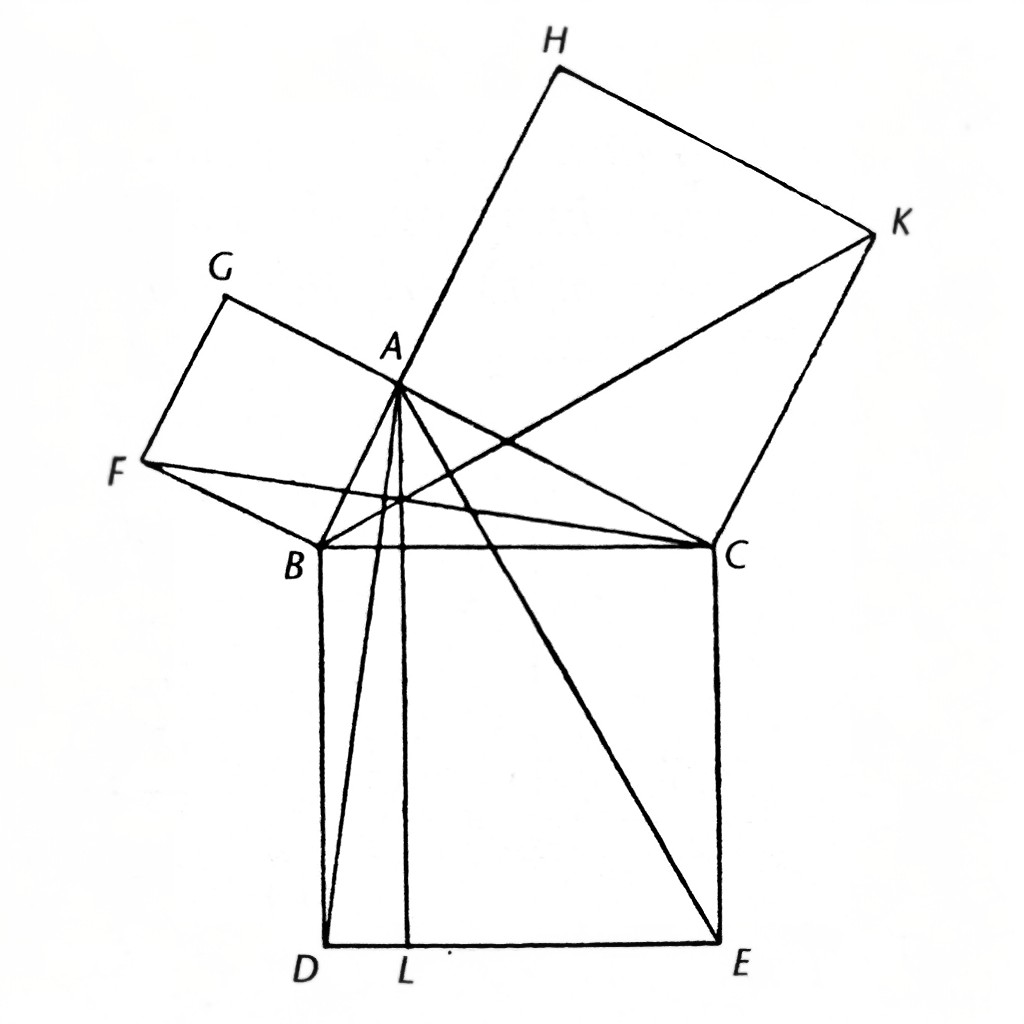Preprint of a new paper examining the material conditions that give rise to internationally recognized scientists just came out. The authors argue that if we were actually recognizing and nurturing scientific talent, we'd expect the family income distribution of Nobel laureates to be roughly normal (i.e. most Nobel winners would come from families with incomes around the 50th percentile). Their results very much do not bear this out: the average Nobel winner grew up in a household in the about the 90th percentile of income no matter where they grew up, with disproportionately large numbers coming from the 95th percentile and up. This strongly suggests that academic achievement, especially at the highest levels, is not a meritocracy, but rather limited by the material conditions of birth.
![]() I know, but the size of the effect is really staggering.
I know, but the size of the effect is really staggering.
It's the epigraph to the paper itself, to their credit.
Honestly one of the most fundamental grievances I have with the world, human potential is so so so so much more than what exists now
Kings Midas rule over us all, the telos of every system they touch is reoriented towards gold

"I cannot stink, as I never eat meat and am enlightened. Showering actually makes you stink. I think you smell bad because you ate a hamburger and took a shower. Please excuse me while I scream at this 9 year old."
- Rev. Stephan Jobes, Esq.
On a level plain, simple mounds look like hills; and the insipid flatness of our present bourgeoisie is to be measured by the altitude of its great intellects.
I am, somehow, less interested in the weight and convolutions of Einstein's brain than in the near certainty that people of equal talent have lived and died in cotton fields and sweatshops.
- Stephen Jay Gould
This reminded me of an exception to this which is the portuguese communist writer Jose Saramago, he grew up very poor and won the nobel prize in literature 25 years ago TODAY!
Here's a quote from when he visited Palestine
During the Second Intifada, while visiting Ramallah in March 2002, Saramago said that "what is happening in Palestine is a crime we can put on the same plane as what happened at Auschwitz ... A sense of impunity characterizes the Israeli people and its army. They have turned into rentiers of the Holocaust." In an essay he wrote expanding on his views, Saramago wrote of Jews: "educated and trained in the idea that any suffering that has been inflicted . . . on everyone else . . . will always be inferior to that which they themselves suffered in the Holocaust, the Jews endlessly scratch their own wound to keep it bleeding, to make it incurable, and they show it to the world as if it were a banner."
They did exclude both literature and peace from this study. The dataset is only for science (and economics).
damn i read Blindness a few years back never knew the guy was a comrade
You're telling me that those who were born into a headstart and didn't have to live through the struggle of their parents, did better than others? Wow, what a find!
I think this is significant for two reasons. First, the size of the effect: I think we'd all have guessed that it would skew pretty heavily toward the top of the income distribution, but the degree to which it is skewed to the very, very top is still pretty staggering. Second, I think there's still a popular perception--both among the general public and parts of the scientific establishment itself--that science is the ultimate meritocracy: it doesn't care about who you are or where you come from so long as you're smart and interested in The Truth. This blows that narrative out of the water, which is a good thing.
As someone who used to believe this narrative, yup! Complete rube combined with very sheltered upbringing will sure do it!
Here's a fun (not really) fact that really put the final nail in the coffin on this idea for me: you know how grad students are supposed to be poor? Like, that's the stereotype, as a grad student you're super poor but then later you get a high-paying job making the years of poverty worth it. Well. Grad students really aren't that poor. When I was a grad student, my partner worked at the same university I did, as a groundskeeper. His coworkers were mostly middle-aged guys with families. I made more money as a grad student than he did as a groundskeeper. Sure, compare a grad student stipend to a tenured professor salary and the stipend looks tiny, but compare it to the yearly earnings of a non-faculty employee and suddenly you see that grad students are actually fairly well paid.
So, how does this fact (grad students aren't actually that poor, relatively speaking) have any bearing on the narrative that science is open to everyone and doesn't care about your background? Well, if that narrative were true then you'd have more grad students coming from poorer families who would not feel that a grad student stipend is a tiny pittance. But you don't. Most grad students feel like they're living very cheaply, even if that's not really true.
None of this is to say I think grad students should be paid less. Most of them are underpaid and overworked. It's simply to say that the non-faculty employees of a university should be paid much, much more.
It's not just that you did not see your parents struggle. The academic world Is fiercely competitive, the positions are extremely precarious and badly paid until tenure.
It's no surprise that those that do not have to worry about their economic situation can take higher risks and survive more failures than those who do not.
roughly normal
Roughly uniform you mean? Most people aren't near the 50th percentile, there's the same number of people in the 45th to 55th percentiles as the 0th to 10th and 90th to 100th.
I know, but the size of the effect is really staggering.
Honestly, not really. I think it's less about wealth directly as it is about the overly particular academic path. I think there is high heritibility among professors because their kids get a much better idea of how to become a professor, and have a built-in network. There's probably a similar trend with lawyers and doctors.
Yeah, that was sloppy, sorry. Here's how they put it:
In a world where access to opportunity is equal and outlier talent is randomly assigned, the average Nobel laureate would have a socioeconomic rank of 50.
You're right that that's not the same thing as a normal distribution on this diagram.
I think it's less about wealth directly as it is about the overly particular academic path. I think there is high heritibility among professors because their kids get a much better idea of how to become a professor, and have a built-in network.
The paper also tracks education rank and parent occupation; income is way more significant than anything else. In fact, the most common parental occupation for Nobel parents is "business owner." I'm sure the effect you're talking about isn't insignificant, but it seems to be dominated by the effect of wealth, at least according to this paper.
have a built-in network
This! Simply knowing how to network and having the right peer group are such big factors on how a career in academia goes (or doesn't go).
I think it's less about wealth directly as it is about the overly particular academic path. I think there is high heritibility among professors because their kids get a much better idea of how to become a professor, and have a built-in network.
Professors are nowhere near the 95th percentile in income. If this were the case, you would expect to see a spike around the 75-85 range, not at 95.
Professors in Canadian R1 equivalents are definitely in the 95th income percentile lol. Virtually everyone in the department I got my PhD from are in the 98th and 99th percentiles.
Fair enough, I can only speak for the US. In the US, the 50th percentile for professors is about the 80th percentile nation-wide.
I find it surprising that you had professors making 400,000 per year
I thought the cutoff for the 99th percentile was closer to $250k here, but a large chunk of the department was in the $200k-$300k range
I forgot this was in Canada. That makes more sense I suppose
tenured professors at private universities make around 200,000 per year, which puts them at the 94th percentile. Public university professors name around 150k, which puts them at the 90th percentile.
Can I ask where you got that data? Those numbers are substantially higher than I was able to find in the US, but I grant that my sources are self-reports. I can find public data, but only as recently as 2010.
Secondary source: https://www.bestcolleges.com/news/analysis/2021/06/01/college-professor-salary/
Primary source: https://www.aaup.org/preliminary-2023-24-faculty-compensation-survey-results
To be honest, you could replicate this same graph for everything and anything in life. To me personally, it really isn't news, neither is the size of the effect. Social mobility in western society is insanely low (and honestly not amazing anywhere). :same-graph:
However, this fact really does need to be hammered into peoples' heads: Even if you only care about meritocracy, capitalism is an awful system as we're clearly denying ~90% of potential achievers from achieving by allowing this kind of inequality. The wealth you're born into is the biggest indicator of success in life, to such an insane degree that it's borderline the ONLY indicator of your chance of success in life.
Even revolutionary leaders are most typically bourgeoisie-born class traitors. Turns out having food, education, stable family, reliable shelter and healthcare, and opportunities in life really, really helps.
I know it's really not the same thing, but I wonder what that graph is like for literature.
Holy shit. This is supposed to be a bell curve, and it looks like this. Grim.
It is actually supposed to look like a uniform distribution as percentile-to-percentile diagram.
Higher Education always favors people from a rich background, this is the case in almost all countries.
I don't know enough about the internal workings of that state to verify this however: does a poor farmer in North Korea have equal access to education as one in the city, or the Kim family themselfs? I find this very hard to belive
Not the Kim family, as they tend to study abroad
Nobody is suggesting that the dprk is a perfectly equal system. That is practically impossible to do and is not the goal of socialism. The dprk is not a perfectly equal system, just a somewhat more equal one.
I hope the person who did this study gets an ig nobel.
Also I would love to see this same study done on ig nobel winners
This is the issue with not allowing free education. Next Einstein or Tesla could be working a dead end job not reaching their potential.
I would like to see the same graph for The Sveriges Riksbank Prize in Economic Sciences in Memory of Alfred Nobel.
















